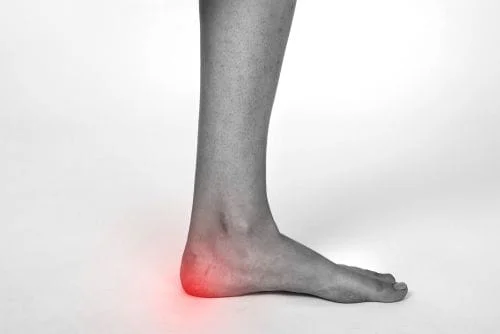Cracked Heels
Cracked Heels
Cracked heels, or heel fissures, are one of the most common foot problems that you can experience, and they can occur in anyone from children to adults. The unsightly cracks tend to develop on the back and bottom of the heel as it gets too dry. There are many ways you can get cracked heels and they usually don’t cause too many serious issues. However, they can become irritated and painful as the cracks can grow quite deep and lead to bleeding or infections if left untreated.
The good news is that this foot condition can be treated very effectively by a foot specialist or home remedies.
Symptoms
What Are the Symptoms of Cracked Heels?
The skin around your heels can often become dry and thick, leading to painful heel cracks. There can be many symptoms associated with cracked heels, such as:
- Hardening of skin on your heel
- Visible cracks that form on your heel
- Calluses begin to form around the rim of your heel
- Dry skin
- Bleeding
- Pain stemming from the heel
- Swelling and inflammation
- Redness on the heel
If you’re experiencing these symptoms, it’s best to book an appointment with a foot specialist. Untreated cracks can leave your feet vulnerable to infections, such as athlete’s foot.
Causes
What Causes Cracked Heels?
When the heel becomes too dry or calluses become too thick, cracks can begin to develop. Any added pressure on the fat pad of your heels can cause the dry or thick skin to form fissures.
The most common causes of cracked heels are:
- Open back sandals
- Dry skin
- Cold and dry weather
- Using harsh soaps
- Depletion of the fat pad under the heel
- Hot baths or showers
- Standing for long periods
Other medical conditions can lead to cracked heels, such as:
- Diabetes
- Eczema
- Psoriasis
- Flat feet
- Heel spurs
- Obesity
Treatment
How Do I Treat Cracked Heels?
A foot specialist can treat heels by removing any calluses around the heels. They can also offload any added pressure on the heel so that the cracks can close properly. In some cases, insoles that provide extra cushioning for your heels can decrease the risk of cracking.
There are also many home remedies that you can use when dealing with cracks.
Soak & Exfoliate Your Feet
Soaking and moisturizing your feet can prevent those cracks from getting worse. The soaking process will relieve any added pressure to a dry foot that would lead to severely cracked heels.
- Put your feet in lukewarm, soapy water for up to 20 minutes.
- You can use a pumice stone to scrub away any hard or thickened skin.
- Gently dry your feet.
- Apply a moisturizer to the affected area to rid dead skin and provide enough moisture. Stick to moisturizers that contain shea butter, salicylic acid, or alpha hydroxy acids.
- You may also apply petroleum jelly over your feet and thick socks to retain moisture.
Liquid Bandage
Applying a liquid bandage can help seal the cracks forming on the heel. Make sure to apply the bandage on clean, dry skin. As the cracks begin to heal, the coating from the bandage will help the cracks heal together.
Honey
Due to its antimicrobial and antibacterial properties, honey is a natural remedy that you can use on your heels. It can also be utilized as a foot scrub after a soak. Honey can help your feet heal, cleanse any wounds, and moisturize the skin as well.
Risk Factors
Why Are My Heels Cracked?
Some factors that increase the risk of developing heel fissures, such as:
- Severely dry skin
- Cold weather; when the temperatures begin to drop, it can cause the skin to dry out.
- Heel calluses
- Frequent hot showers or baths; hot water tends to dry out the skin.
- Using harsh soap to wash your feet
- Poor circulation developed from conditions like Diabetes
Prevention
How Do I Prevent Cracked Heels?
- Wear shoes that fit properly and support your heels.
- Avoid standing for too long if your heels are dry. Too much pressure can accelerate the cracking of your heel.
- Avoid taking showers and baths that are very hot.
- Wash your feet with gentle soaps.
- Moisturize your feet with oil-based creams.
- Practice routine foot exfoliation.
- Don’t use a stone or foot file when your feet are dry.
- See a foot specialist regularly for callus removals or recommended foot care products.
Are you tired of dealing with those cracked heels? Whether you’re in pain or not, it’s paramount to take care of your feet to prevent future problems. Make an appointment with our foot specialists today for any services pertaining to the health and care of your feet.






